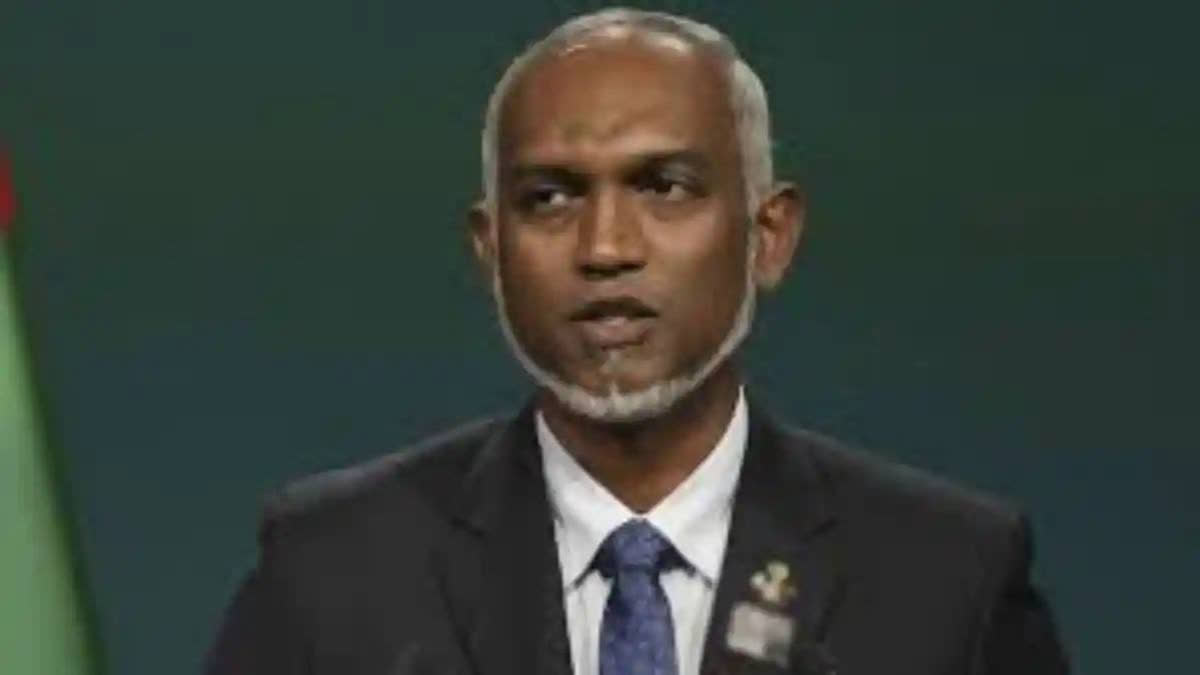As expected by political analysts, Maldivian President Mohammed Muizzu displayed the softening of his approach towards India. During the first interview given to a local channel, Muizzu pleaded with India to be more lenient on the issue of the return of Indian loans to the island nation.
It may be noted that $400.9 million is due for repayment by the Maldives to India by the end of the year, an amount very difficult to pay for a country with a GDP of just $ 6.190 billion, which is already reeling under a total external debt of US $ 3.577 billion, more than 42% of which is owned by China alone.
The Maldives owes a total of $517 million to India. In the past fiscal year alone, India spent $93 million. On development projects in the Maldives, which was about double the budgeted figures, despite Muizzu’s diatribes against India. India has always stood by the Maldives in the Latter’s difficult times. It was India only, which rushed its troops to the Maldives in November 1988 when the country faced a coup attempt. During the 1980s and 90s, India gifted a 200-bed hospital and a polytechnic to the Maldives.
India was the first responder when the Tsunami struck the Maldives in 2004. Since 2008, India spent more than Rs 2454.59 crore under various schemes for assistance to the Maldives, which included the construction of 500 affordable houses, a Technology Adoption Centre, a National College of Police and Law Enforcement, a water and sanitation project in Male, a road and land reclamation project in Addu Atoll and a faculty of hospitality and tourism to name a few besides training more than 20,000 personnel of the Maldives National Defence Force.
Our Navy and Coast Guard have also engaged MNDF in various joint exercises from time to time. Speaking to a local daily “Mihaaru” on March 22, Muizzu waved, for the first time after his ascendency to power, an olive branch to India. Admitting that India was instrumental in providing aid to the Maldives and that it has implemented the greatest number of projects in the Maldives, Muizzu expressed the hope that India would “facilitate debt-relief measures in the repayment of loan” and disclosed that, during the COP in Abu Dhabi, he had conveyed his “appreciation” to the Indian Prime Minister for the Indian contribution.
He also emphasised that he did not want to halt the development projects by India, but rather requested PM Modi to strengthen and expedite these projects. On the contentious issue of the removal of the tiny contingent of defence personnel from his country, Muizzu tried to justify his stand by saying that this policy was not India-centric, but it would uniformly be applied to all foreign countries.
Now the question is why is he trying to make a U-turn on India. There can be four potent reasons behind this volte-face. Firstly, it will be an unbearable burden for the tiny economy of the Maldives to repay more than $ 400 million in nine months. Secondly, China had signed 20 agreements and announced a grant of $130 million during Muizzu’s visit to Beijing, it seems that China is in no mood to keep on pumping money into the Maldives without any visible sign of repayment by the archipelago shortly.
One should not forget that in the case of Chinese debts, the amount of actual debt is often more than what is shown in the public domain. Thirdly, the recent warning issued by the IMF to the island nation against its precarious economic condition would also have forced Muizzu to soften its stand against India.
Last, but not least, the opposition back home has also compelled Muizzu for a course- correction as is clear from the advice given to him by his predecessor Mohamed Solih that the President should not be “stubborn” while dealing with India. But, it remains to be seen how pragmatic and rational approach Muizzu can display for his country’s benefit with his northern neighbour, which is also, undoubtedly Indian Ocean's ‘first responder’.
Read more: Explained: Brewing Political Pot In Maldives And What Is In It For India



